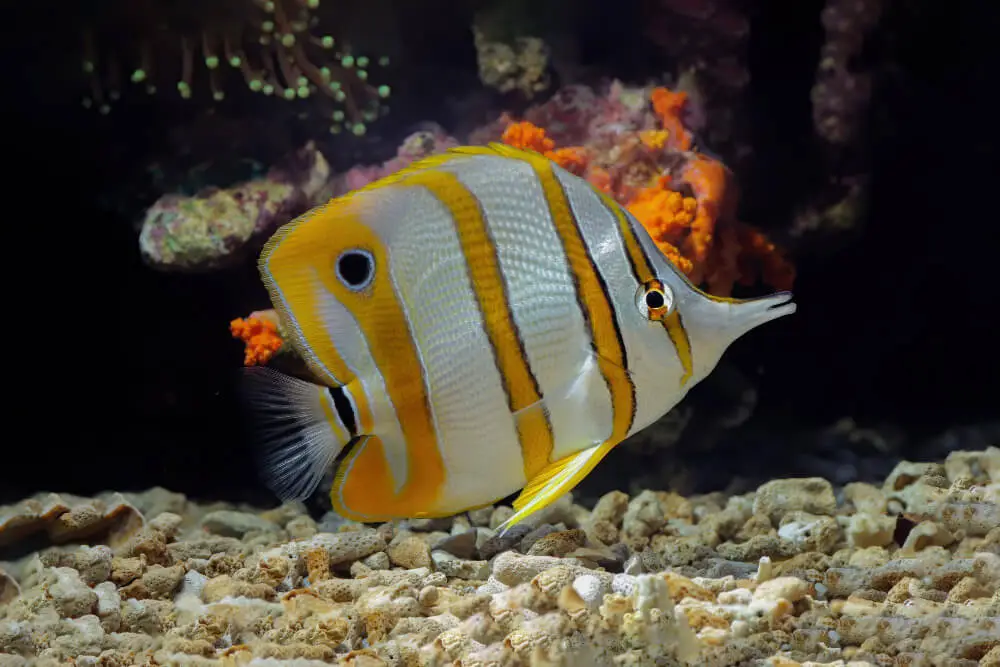If you’re considering setting up a fish tank, the first essential requirement is a suitable fish tank or aquarium. A common query that arises is whether well water can be used in an aquarium, you are also wondering if you can use well water for your fish.
In this article, we’ll explore the pros and cons of utilizing well water for your fish tank. Additionally, we will delve into the chemical aspects of well water or make an informed decision when selecting water for your aquarium.
Is Well Water Good For Fish Tanks?
Yes, well water is good for fish tanks, even fish love ponds, lakes, creeks, rivers, or all kinds of natural sources of water including well water. Well water is directly drawn from earth that’s why fishes love well water too. But you need some safety instructions to set up fish in your fish tank.
Why Well Water Might Harm Your Fish (and How to Fix It!)
It’s difficult to find a perfect source of water for your fish tank, well water have also some problems and their solution are given below:
1. Contaminants
Well Water may contain heavy metals within the soil such as nitrates, harmful bacteria, volatile organic compounds from fuels, and other components that are harmful to the health of your fish.
Some people treat well water for chlorine compounds to reduce harmful contaminants within well water, which are very harmful to both fish and beneficial bacteria that help biological filtration in your tank, without beneficial bacteria fish would die from ammonia poisoning. Before using it in your fish tank, you should test your well water quality.
2. Water pH
If you want to keep your fish healthy, you’ll know the importance of the right pH. Amazonian fish like Angelfish, Silver Dollars, and Neon Tetra prefer acidic-neutral pH
6.5-7.0, in hard water lakes such as African Cichlids fish need more alkaline water pH 7.4-9.3.
The acidity of your well water depends on your local geology. For example, high levels of limestone or dolomite make well water more alkaline. If soil contains peat, the local water will be acidic. You should check the pH of your well water to make your fish healthy.
3. Dissolved Oxygen
High-concentrated dissolved oxygen in your water is the best option for your fish. But well water available deep underground tends that’s why well water has lower oxygen concentration. You should need equipment that increases dissolved oxygen contraction in your well water.
4. Water Hardness
The concentration of dissolved minerals within water is known as water hardness and it is measured in dGH(degrees of general hardness).
Some fish species also have their preferences about the dGH of the water, that’s why hardness level dGH is also essential for fish.
Softwater has degrees of general hardness up to 10 dGH is considered as soft, water that contains more than 15 dGHis considered as hard water. That’s why you should need to test the water hardness and identify your fish species.
Pons of Using Well Water in Fish Tank
1. No Chlorine
Municipal water contains chlorine because it is treated with chlorine, which can be harmful to the lungs of your fish. But well water obtained from natural sources doesn’t have dissolved chlorine in well water.
2. Minerals
Well water contains some beneficial minerals for certain species of fish. However, high concentrations of minerals are harmful to fish.
3. Chemical Additive Absence
Certain municipal water treatment chemicals are found in tap water but in the cause of well water chemical additives absent water that are beneficial for the health of fish.
4. Cost Savings
Well, water may lead to cost savings compared to using treated tap water.
5. Environmentally Friendly
Using well water can be considered more environmentally friendly due to reduced reliance on chemical additives than municipal water.
Cons of Using Well Water in Fish Tank
There are many cons of using well water in your fish tank due to the following reasons:
1. Limited Oxygen Content
Well water is obtained from underground sources of water that’s why the concentration of dissolved oxygen in well water is less than in other sources of water such as lakes and rivers.
2. Microbial Contamination
Well water may contain microbial contamination such as harmful bacteria, Coliform, or E.coli especially when the well system is not properly maintained. These microbial contaminants may be harmful to fish health based on your fish species.
3. PH Levels
Some species of fish are very sensitive and die due to uncomfortable pH, that’s why pH has a great impact on fish. The pH of well water may be very high or very low in many areas. That’s why checking the pH of well water is essential.
4. Dependence
The quality and quantity of well water can depend on factors such as groundwater levels, well depth, filtration system, and local environmental conditions.
Conclusion
While well water can be a viable option for your fish tank, it is crucial to carefully assess the pros and cons before making a decision. The natural origin of well water makes it appealing to fish, as it lacks chlorine and contains a high concentration of beneficial minerals.
However, challenges such as contaminants, pH variations, limited oxygen content, microbial contamination, and dependence on local conditions should be thoroughly considered. Testing and treating well water for potential issues, pH levels is essential for ensuring the health and well-being of your fish.
Ultimately, a comprehensive understanding of your well water’s chemical composition and addressing potential hazards will contribute to the success and sustainability of your aquarium setup.
FAQs
Is well water safe for fish tanks?
Yes, Well water can be safe for fish tanks, but it depends on factors such as water quality, pH, and potential contaminants.
What parameters should I test in well water for fish tanks?
Test parameters include pH, hardness, contaminants, temperature, and oxygen levels.
Can well water be too hard for fish?
Yes, well water is often hard, and some fish species may not thrive in high-hardness conditions.
Is well water susceptible to bacterial contamination that can affect fish?
Yes, well water can be susceptible to bacterial contamination, requiring regular testing and potential treatment.
Do fish have specific pH preferences in well water?
Yes, different fish species have varying pH preferences, so it’s crucial to know your fish’s requirements.





